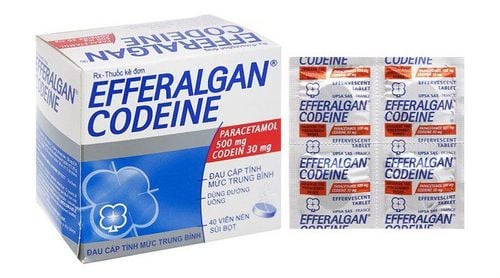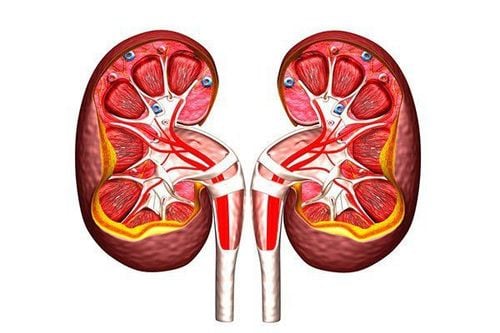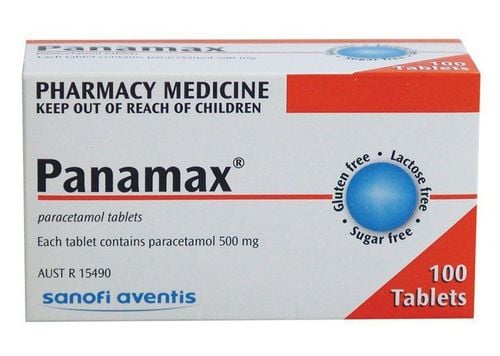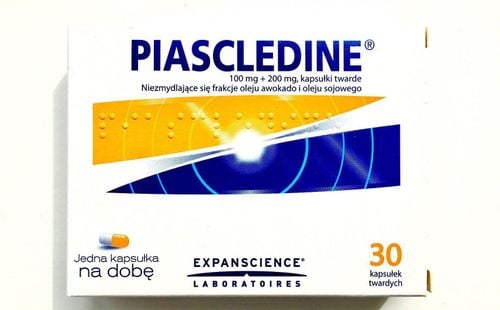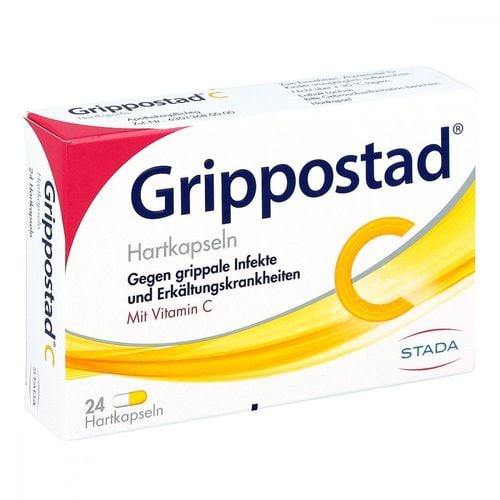Analgin is a pain-relieving and fever-reducing medication, with its pain-relieving effect considered the primary action. The drug is indicated for conditions such as colds, flu, high fever, joint pain, headaches, etc. Currently, there is a lot of information about the Analgin 500mg product on the market, but it is still not complete. To better understand what Analgin 500mg is and its uses, please read the article below.
1. What is Analgin 500mg?
Analgin, internationally known as Metamizole sodium or Metamizole Natri, belongs to the class of antipyretic, analgesic, and anti-inflammatory drugs. It is available in tablet form with a 500 mg dosage. Analgin 500mg is indicated for use in anti-inflammatory and pain-relieving treatments in cases of:
Joint pain, rheumatoid arthritis, chorea, headaches, dental pain, menstrual pain, nerve pain, muscle pain, abdominal pain (kidney, liver, intestines), pulmonary infarction, myocardial infarction, aortic aneurysm, major vascular thrombosis, toothache, dysmenorrhea, pain due to spasms (digestive tract, bile duct, urinary tract), pain due to neuritis, postoperative pain, cancer-related pain.
Inflammatory conditions (pleuritis, pneumonia, lumbago, myocarditis), trauma, burns, decompression sickness, shingles, tumors, orchitis, pancreatitis, peritonitis, esophageal perforation, pleuritis, complications post-blood transfusion, priapism.
The medication is also used in fever syndromes in acute infectious diseases, purulent infections, and urinary conditions (prostatitis), as well as insect stings (mosquitoes, bees, butterflies, etc.).
2. What are the uses of Analgin 500mg?
2.1 Pharmacodynamics
Analgin has anti-inflammatory, analgesic, and anti-infective effects. It inhibits cyclooxygenase activity, reduces the formation of endoperoxides, bradykinin, certain prostaglandins, free radicals, and inhibits the peroxidation of lipids. It blocks the transmission of nociceptive impulses and pain perception through Gaulle’s fasciculi and Burdach’s columns, raising the pain threshold of thalamic centers sensitive to pain, and increasing heat dissipation. Its action develops within 20-40 minutes and peaks in 2 hours.
2.2 Pharmacokinetics
When taken orally, the drug is rapidly and completely absorbed. It is hydrolyzed in the intestinal wall to form an active metabolite—unmodified Metamizole does not appear in the bloodstream. The active metabolite—4-methyl-amino-antipyrine—is further metabolized into 4-formyl-amino-antipyrine and other metabolites. The binding rate of the active metabolite to protein is 50-60%. The metabolites are excreted in the urine and breast milk.
2.3 Contraindications of Analgin 500mg
According to recommendations, Analgin 500mg is contraindicated in the following cases:
- Patients allergic to any ingredient or excipient of Analgin 500mg.
- Hypersensitivity to pyrazolone derivatives.
- Bone marrow suppression (granulocytopenia, neutropenia, cell-killing, or infections).
- Severe liver or kidney dysfunction.
- Bronchial asthma due to prostaglandins.
- Hypotensive patients.
- Hereditary hemolytic anemia related to glucose-6-phosphate dehydrogenase deficiency.
- Pregnant and breastfeeding women (if necessary, the treatment duration should be minimized).
Note:
- Use in children under 3 years old should be cautious.
- Blood picture should be monitored when using the drug for prolonged periods.
- Red urine may result from the elimination of metabolites.
2.4 Side Effects of Analgin 500mg
- Dizziness, headaches, drowsiness.
- Nausea, vomiting, dry mouth, difficulty swallowing, abdominal pain, diarrhea.
- Skin rash, itching.
- Kidney damage.
- Low blood pressure.
- Pink urine.
- Agranulocytosis, thrombocytopenia, bleeding, interstitial nephritis.
- Allergic reactions (including Stevens-Johnson syndrome and Lyell’s syndrome, bronchospasm, anaphylactic shock).
If using this medication long-term, the doctor may regularly monitor kidney function, liver function, and blood component levels. Serious complications such as stomach bleeding and kidney issues may arise with prolonged use.
2.5 Precautions When Using Analgin 500mg
Some important precautions when using Analgin 500mg include:
- The medication should only be used under the supervision of a doctor.
- It should not be used frequently for long periods due to its potential toxicity to bone marrow.
- Not recommended for acute abdominal pain (unless the cause is explained).
- When used for patients with acute cardiovascular conditions, careful monitoring of hemodynamics is required.
- Caution in patients with a history of kidney diseases (pyelonephritis, glomerulonephritis) and chronic alcohol use.
- Use during pregnancy can be dangerous. Although human studies are limited, animal studies have shown negative effects on developing infants. A doctor may consider the potential risks before prescribing it.
- If you have a history of heart disease or stroke, inform your doctor.
- Avoid alcohol when using Analgin 500mg as it may increase the risk of stomach problems.
- If using Analgin 500mg long-term, the doctor may monitor kidney function, liver function, and blood component levels regularly.
3. How to Use Analgin 500mg Effectively
Take the medication orally.
- Swallow the whole Analgin 500mg tablet, do not crush or mix it with other substances.
- It is recommended to take it after meals to avoid stomach irritation.
Dosage:
- The recommended dosage is 250 to 500 mg, 2-3 times a day.
- The maximum single dose is 1g, and the maximum daily dose is 3g.
- For children, the recommended dose is 5-10 mg/kg. The typical dose for children aged 2-3 years is 50-100 mg, for 4-5 years is 100-200 mg, for 6-7 years is 200 mg, and for 8-14 years is 250-300 mg, taken 2-3 times a day.
Overdose:
- Symptoms: hypothermia, hypotension, palpitations, shortness of breath, tinnitus, nausea, vomiting, fatigue, drowsiness, delirium, impaired consciousness, seizures; may lead to acute agranulocytosis, hemorrhagic syndrome, acute liver and kidney failure.
- Treatment: induce vomiting, gastric lavage, administer saline laxatives, activated charcoal, perform diuresis, alkalinize blood, and provide symptomatic treatment to maintain vital functions.
The above information provides important details about Analgin. Understanding its usage will lead to positive results in treating diseases.
To arrange an appointment, please call HOTLINE or make your reservation directly HERE. You may also download the MyVinmec app to schedule appointments faster and manage your reservations more conveniently.




